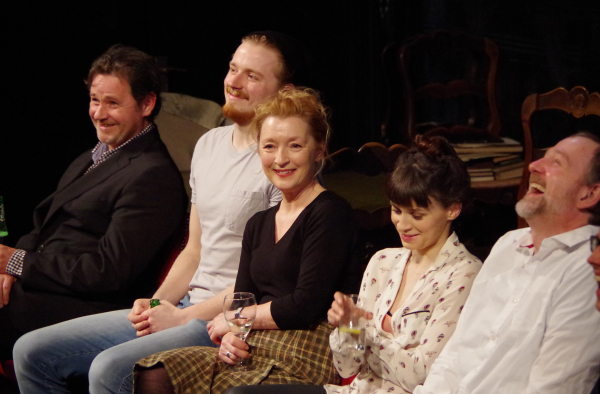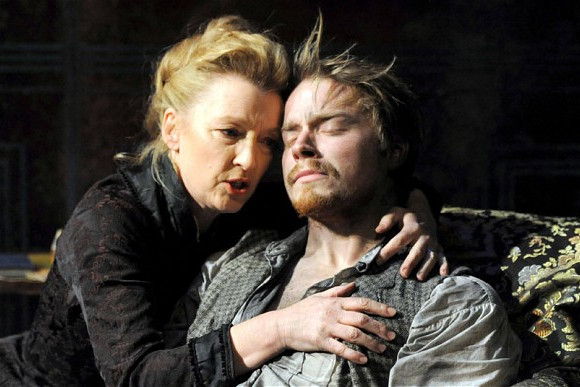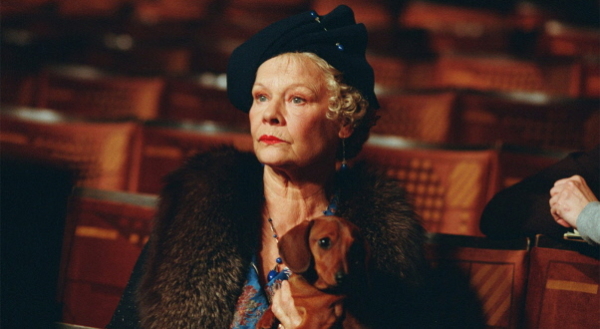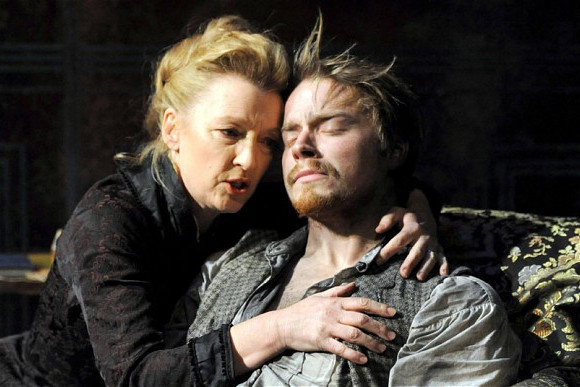Leading Ladies: Lesley Manville – 'I'm not shy about being raw'
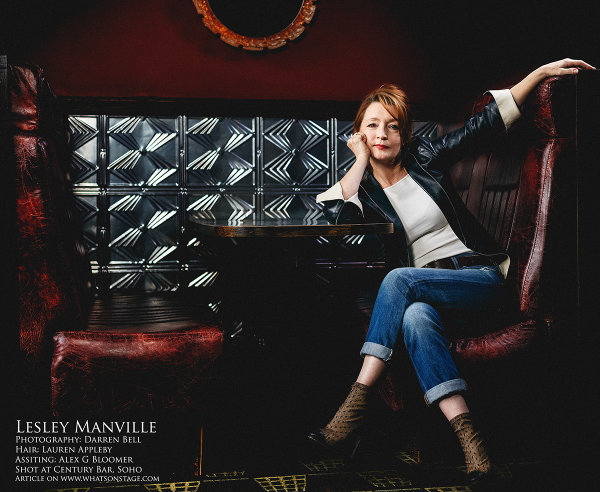
"Some of us belong to the stars," sings Billy Liar in the musical, and Lesley Manville has just unequivocally joined the galaxy, winning an Olivier award as best actress for her stunning performance last year as Mrs Alving in Richard Eyre‘s symphonic production of Ibsen’s Ghosts at the Almeida and Trafalgar Studios.
Ghosts goes to BAM in Brooklyn next March. And then, the bright-as-a-button pocket dynamo tells me during a photo-shoot at the Century Club on Shaftesbury Avenue, we can expect a whole lot more of Lesley onstage later next year, in three major new productions, one an O’Neill classic, directed by Eyre and Howard Davies.
She might be ready for Mary Tyrone in Long Day’s Journey Into Night but she won’t confirm. In Ghosts, she was a young widowed woman grown old before her time, a frail and broken bird with troublesome offspring; this was a high Victorian echo of her equally astonishing performance three years earlier in Mike Leigh‘s Grief at the National Theatre, her tenth collaboration with the filmmaker. In what really was good Grief, she played a war widow weighed down by the world and her own aloneness, her face a mask of infinite sadness and fear.
Still fresh-cheeked, direct and down-to-earth, her looks totally belying her 58 years, she seems to have arrived at the point of being a mature heroic actress without becoming a grand dame. How does she feel about this new plateau of achievement? "I feel there’s been a definite shift because of the weight of those two plays, really. And the Olivier award has made me feel different, acknowledged, as though I’ve arrived somewhere."
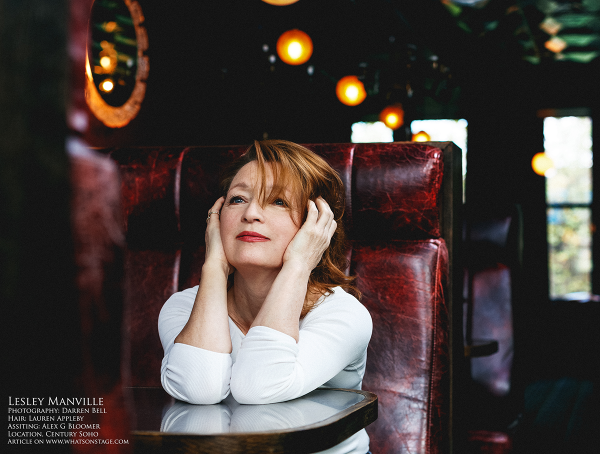
The extraordinary thing is that the trajectory of her career has been somehow straggly, a mingling of feisty ensemble new work — in both the Caryl Churchill classics, Top Girls and Serious Money, the second with first husband Gary Oldman at the Royal Court in the 1980s — Ibsen and Chekhov with Damian Lewis, Judi Dench and all the Cusacks, and character leads and vignettes with Leigh.
She first collaborated with Leigh on the aborted "Ice-cream" play at the RSC in 1978 but this led to "live sex" on radio in Too Much of a Good Thing, playing a fat girl losing her virginity with Philip Davis as her driving instructor in a bedroom wired for sound in Islington. A far cry, this, from her decision not to join Arlene Phillips‘s Hot Gossip dance group in case her dad, a Brighton cab driver, was watching her jiggle around in tight pants and sheer stockings.
"I love doing classics," she says, shaking out her long brown hair and packing up her suitcase of glamour frocks, "it’s where I’ve landed now, but not at all where I started. Working with Max Stafford-Clark [who directed the Churchill plays] and Mike is all about creating characters, and Grief and Ghosts were all about emotions, tapping into them. I’m not at all shy about being raw, which I suppose comes with age and confidence."
She trained at Italia Conti (where Arlene Phillips taught dance) and first appeared in the West End in 1972 in the chorus of a musical about Queen Victoria, I and Albert, directed by John Schlesinger. "I did everything in that show, but I didn’t sing again until all those dirty Ian Dury songs in Serious Money. "Time for a big musical blow-out, then? "I’d love to do one. I keep in touch with my friend, the composer George Fenton, who’s mulling over Mrs Henderson Presents as a musical, so that’s another possibility…"
She was off, the day we met, to the London Film Festival screening of her latest Mike Leigh cameo, the 19th century geologist and physicist Mary Somerville (as in Somerville College, Oxford) in Mr Turner. "She was interested in theories about the violet section of the spectrum, and the experiment we do in the film is exactly what she did. Her memoirs are fascinating…I think Mike wanted an intellectual woman in the film, as the others are all domestic."
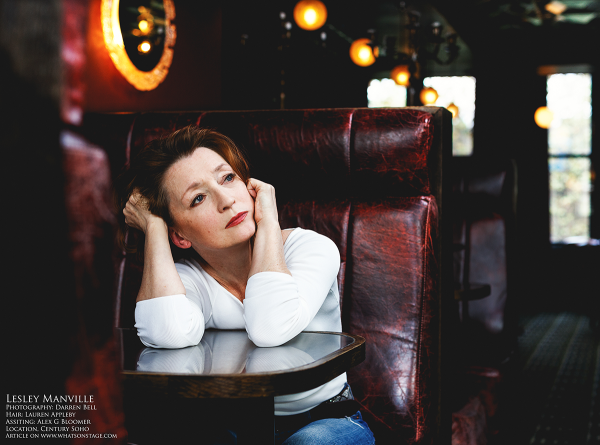
As with her portrait of W S Gilbert’s wife in Topsy-Turvy (1999) the role was a mixture of research and the usual Leigh method of improvisation in character and rehearsal (nothing in his movies is "made-up" on screen), whereas her devastating performances in other Leigh movies – as the insufferably posh neighbour Laetitia Boothe-Braine in High Hopes (1988) or the worn-down supermarket cashier in All or Nothing (2002), saddled with Timothy Spall‘s depressed taxi-driving husband and their morbidly obese son, played by James Corden – were developed painstakingly from scratch.
"Mike’s way of working suits me perfectly. I’m organised, and fairly logical, and I love making lists. My first on-screen work with him, Grown-Ups (1980), changed my career overnight." She teamed again with Philip Davis, a pair of newlywed former school friends who move into a house next door to "old Butcher," a teacher with grunts and other vocal tics they still can’t help sending up.
Mr Butcher was played by the late Sam Kelly, one of the informal Mike Leigh repertory company – he was, unforgettably, Manville’s tragically discarded bachelor brother in Grief – along with Davis, Spall, Brenda Blethyn, Ruth Sheen, Marion Bailey (now Leigh’s real-life partner), Wendy Nottingham (also in Grief), Jim Broadbent and of course Leigh’s ex-wife Alison Steadman.
"The thing about working with Mike, or with Max, is that it all feeds in. I’ve worked with other directors who don’t have a system, necessarily, but the key thing is that I take bits from all of them; and I’ve been truly lucky in working with Richard Eyre, Nick Hytner, Howard Davies, Marianne Elliott. You end up having a full, collaborative experience in the rehearsal room, and that’s the whole joy of it."



